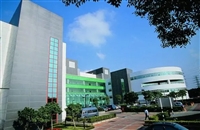| 型号 | 品牌 | 替代类型 | 描述 | 数据表 |
| AD7904BRUZ-REEL | ADI |
完全替代  |
4-Channel, 1 MSPS, 8-/10-/12-Bit ADCs with Sequencer in 16-Lead TSSOP |

|
| AD7904BRUZ | ADI |
完全替代  |
4-Channel, 1 MSPS, 8-/10-/12-Bit ADCs with Sequencer in 16-Lead TSSOP |

|
| AD7904BRU | ADI |
完全替代  |
4-Channel, 1 MSPS, 8-/10-/12-Bit ADCs with Sequencer in 16-Lead TSSOP |

|
| 型号 | 品牌 | 获取价格 | 描述 | 数据表 |
| AD7904BRU-REEL7 | ADI |
获取价格 |
IC 4-CH 8-BIT SUCCESSIVE APPROXIMATION ADC, SERIAL ACCESS, PDSO16, MO-153AB, TSSOP-16, Ana |

|
| AD7904BRUZ | ADI |
获取价格 |
4-Channel, 1 MSPS, 8-/10-/12-Bit ADCs with Sequencer in 16-Lead TSSOP |

|
| AD7904BRUZ | ROCHESTER |
获取价格 |
4-CH 8-BIT SUCCESSIVE APPROXIMATION ADC, SERIAL ACCESS, PDSO16, ROHS COMPLIANT, MO-153AB, |

|
| AD7904BRUZ-REEL | ADI |
获取价格 |
4-Channel, 1 MSPS, 8-/10-/12-Bit ADCs with Sequencer in 16-Lead TSSOP |

|
| AD7904BRUZ-REEL | ROCHESTER |
获取价格 |
4-CH 8-BIT SUCCESSIVE APPROXIMATION ADC, SERIAL ACCESS, PDSO16, ROHS COMPLIANT, MO-153AB, |

|
| AD7904BRUZ-REEL7 | ADI |
获取价格 |
4-Channel, 1 MSPS, 8-/10-/12-Bit ADCs with Sequencer in 16-Lead TSSOP |

|
| AD7904BRUZ-REEL7 | ROCHESTER |
获取价格 |
4-CH 8-BIT SUCCESSIVE APPROXIMATION ADC, SERIAL ACCESS, PDSO16, ROHS COMPLIANT, MO-153AB, |

|
| AD7904WYRUZ-REEL7 | ADI |
获取价格 |
4-Channel, 1 MSPS, 8-/10-/12-Bit ADCs with Sequencer in 16-Lead TSSOP |

|
| AD7908 | ADI |
获取价格 |
8-Channel, 1 MSPS, 8-/10-/12-Bit ADCs with Sequencer in 20-Lead TSSOP |

|
| AD7908BRU | ADI |
获取价格 |
8-Channel, 1 MSPS, 8-/10-/12-Bit ADCs with Sequencer in 20-Lead TSSOP |

|
 解析光耦仿真器:升级光耦合器技术的必要性
解析光耦仿真器:升级光耦合器技术的必要性

 英伟达新一代Blackwell GPU过热问题致交付延迟
英伟达新一代Blackwell GPU过热问题致交付延迟

 国产厂商思特威CMOS图像传感器芯片单月出货超1亿颗,技术创新引领行业发展
国产厂商思特威CMOS图像传感器芯片单月出货超1亿颗,技术创新引领行业发展

 台积电5nm和3nm产能利用率达100%,半导体行业景气度持续攀升
台积电5nm和3nm产能利用率达100%,半导体行业景气度持续攀升
